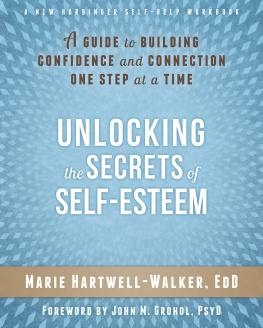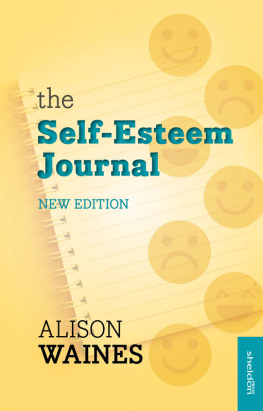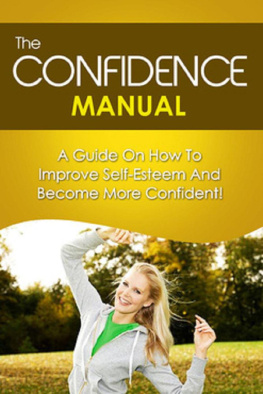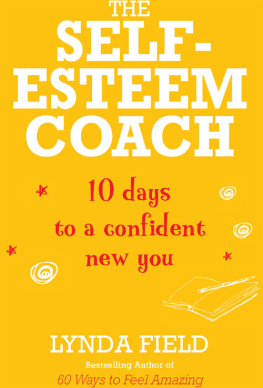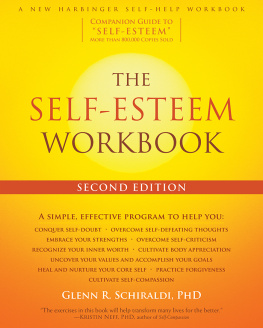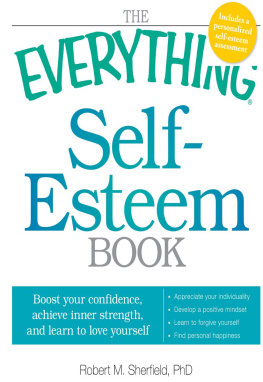
Marie Hartwell-Walker, EdD, is a licensed psychologist and marriage and family therapist in Massachusetts. She has a masters degree in counseling psychology from the Alfred Adler Institute of Chicago, and a masters and doctoral degree from the College of Education at the University of Massachusetts Amherst. She has authored numerous articles on psychology, parenting, and family life, is currently a feature writer and advice columnist for psychcentral.com and contributes to the divorce page of huffingtonpost.com.
Foreword writer John M. Grohol, PsyD, is founder, CEO, and editor in chief of psychcentral.com, the Internets largest and oldest independent mental health social network. Since 1995, psychcentral.com has offered reliable, trusted information about mental health, psychology, social work, and psychiatry, and has hosted over 200 support groups for its readers. Grohol is coauthor of Self-Help That Works, author of The Insiders Guide to Mental Health Resources Online, and a published researcher.
The key to boosting your self-esteem is to change not just how you think, but what you do. Thats the light bulb idea in Hartwell-Walkers eye-opening, empowering new book.
Marianne Wait, health editor and writer
This book is a winner! After convincing us that genuine self-esteem must combine doing good in the world with thinking good about yourself, it shows in clear, practical ways how to progress toward those goals. Hartwell-Walkers step-by-step approach for improving genuine self-esteem begins with a chapter on building ones initial commitment. This is followed by chapters on improved self-care, courage, positivity, and building rewarding relationships. The book is remarkable in that it advances the reader through a series of self-assessments that build upon one another. Hartwell-Walker is not only an experienced therapist and advice columnist, but also a skilled writer whose language is clear and accessible. She connects her readers with inspiring examples that make excellent reading.
George Levinger, emeritus professor of psychology at the University of Massachusetts Amherst

Publishers Note
This publication is designed to provide accurate and authoritative information in regard to the subject matter covered. It is sold with the understanding that the publisher is not engaged in rendering psychological, financial, legal, or other professional services. If expert assistance or counseling is needed, the services of a competent professional should be sought.
Distributed in Canada by Raincoast Books
Copyright 2015 by Marie Hartwell-Walker
New Harbinger Publications, Inc.
5674 Shattuck Avenue
Oakland, CA 94609
www.newharbinger.com
Cover design by Amy Shoup
Acquired by Jess OBrien
Edited by Jasmine Star
All Rights Reserved
Library of Congress Cataloging-in-Publication Data on file
For my family
Contents
Foreword
Over my twenty-year career, one of the questions Ive been asked most frequently is, How can I get more self-esteem? People have a general understanding that more self-esteem is good and that poor self-esteem leads to all sorts of additional problems in a persons life.
Its never been an easy question to answer. Ive always had a difficult time explaining how exactly one goes about obtaining good self-esteem, and I certainly couldnt lay out a set of easy steps one could take to get there. Its not as if theres a self-esteem store one can just visit and make a purchase.
The problem for me was twofold. First, like many people, I underestimated what self-esteem is truly all about. I didnt fully grasp how complex this simple idea actually is. Second, I didnt understand how I came to have good self-esteem in the first place.
The foundation of my self-esteem was laid for me in early childhood through a combination of a hearty work ethic and the view that one could always improve ones circumstances in life. My parents served as good role models, having uprooted their lives to move from a backwoods Pennsylvania coal town to a developing, suburban college town that granted us more opportunities.
When they made the decision to move far away from all of their family and friends, they didnt know if theyd make it in the end. The move took courage and optimism on their part. They just believed that they could, if they only worked hard and did good work in raising their family.
And thats the difference between what most people think of as self-esteem and what this book is all about: genuine self-esteem.
Genuine self-esteem comes not only from feeling good about yourself but also from what you actually do. Actions help define usmore than most people realize. We all have to make difficult decisions in life with no guarantee of a positive outcome. But people with genuine self-esteem try to make decisions that are ethical, moral, and ultimately good. Such everyday decisions and behaviors shape the very way we think about othersand ourselves.
These insights come not from me but rather from Marie Hartwell-Walker, whom Ive known most of my professional career. Shes been an amazing contributor to Psych Central over the years in many different capacities. What Ive often been struck by is her thoughtful analysis of a problem. Far more than anyone else Ive known, she can break something down into meaningful pieces and then put them back together in a way that is newly helpful.
We are awash in self-help books and apps that promise to help us change practically anything about our lives: make us happier, help us break bad habits, motivate us to do the things we dont want to do. Too many of these books are based upon one persons experiences and illustrative anecdotes. Too many apps are created by developers who majored in psychology in college and believe that provides them all they need to know about the complexities of human behavior and behavior change. Too few of them are grounded in the tenets of psychological science and research.
This book is grounded in that science, and also filled with the kinds of stories that make for a compelling and interesting journey.
Despite my own solid self-esteem foundation, I learned more about self-esteem from this book than from any of my graduate school classes. And I learned that even a person with the poorest self-esteem will benefit from reading and participating in the exercises in this book. It is full of the kind of knowledge and wisdom that only a seasoned clinician like the author could provide.
Most importantly, I learned that the tools for enhancing and maintaining ones self-esteem are available to everyone, right now. All you need to do is make the decision to change, and stick to that decision every day from now on. I know it wont always be easy, but I trust that this book will be an invaluable guide to increasing your genuine self-esteem. Good luck in your journey!
John M. Grohol, PsyD
Founder and CEO, PsychCentral.com
Newburyport, Massachusetts
Acknowledgments
In his book Outliers, Malcolm Gladwell argues that success in any endeavor comes from at least ten thousand hours of practice and then the luck of an opportunity coming our way. In my case, the two are intertwined. I am enormously grateful to John Grohol, CEO of PsychCentral.com, for giving me the opportunity to put in that ten thousand hours to develop my craft as a writer. Opportunity knocked again when I was contacted by acquisitions editor Wendy Millstine, of New Harbinger Publications, who had the patience and grace to support me through the proposal process. I owe many thanks to her as well as to her fellow acquisitions editor Jess OBrien, editor Nicola Skidmore, and freelance copy editor Jasmine Star for their encouragement and helpful suggestions. Their thoughtful tutelage helped shape my thinking and my writing. The book is better for it.

